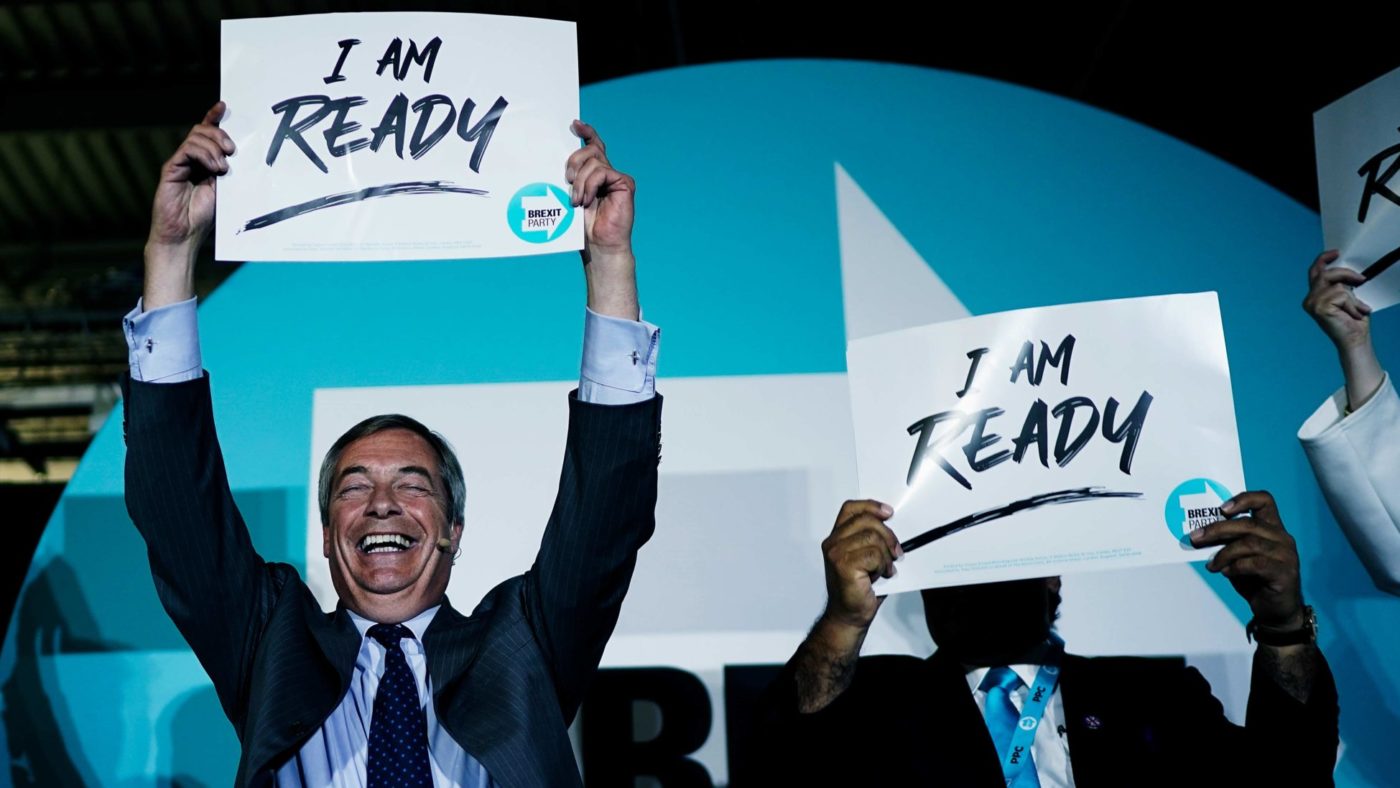There is no triter statement about politics than Harold Wilson’s famous observation, but seldom can a Westminster week have felt as long as this. Only seven days ago it seemed reasonable to imagine Dominic Cummings dancing through Downing Street assailed only by the congratulatory clinking of his infamous ‘Get Ready for Brexit’ mugs. This week, one suspects, not so much. Indeed, if we must seek refuge in hoary old clichés then the best description of the madness comes from the world of sport. Ruminating on his opponent’s best laid plans, champion heavyweight Mike Tyson famously said “everyone has a plan until they get punched in the mouth”. Well, the Government has certainly been punched in the mouth and, just for good measure, shot itself in the foot.
Of course, there are some who still contend that excommunicating the likes of Nicholas Soames from the Tory church is a tactical necessity. But it is no great secret that Westminster types are sometimes too fond of counter-intuitive beard-stroking. So whilst I do allow for the possibility the Prime Minister’s brother resigning in the “national interest” might be a masterstroke of ‘4D chess’, I would also gently suggest it doesn’t look great. No golden rules, sure. But personal humiliation and a powerlessness to direct events do not typically rank high on a Prime Minister’s strategic wish-list.
Still, whether the Government’s plan can recover remains a more difficult question to answer. That plan, as if anyone needs reminding, is to run an aggressively populist ‘people versus parliament’ election campaign before Brexit’s October 31st deadline. And thanks to Downing Street’s staggering ineptitude, this scheme now depends almost entirely on Jeremy Corbyn. Ordinarily, the gift of an election would be readily accepted by the opposition, but this is a world turned upside down by Brexit, and Corbyn must weight the scales accordingly. Timing is everything – nothing in recent memory, not even the financial crash, has more affected the political fortunes of the major parties than the passing of the last Brexit deadline in March. Does Corbyn give the Prime Minster what he wants or instead let him stew in his own juices until that deadline expires? Or, to put it more strategically, will the delay destroy Boris Johnson’s ‘do or die’ credentials or further inflame a Labour-torching populist firestorm.
This is the only question on Westminster lips this weekend and I do not envy Corbyn’s need for a definitive answer. Consulting the focus groups or pollsters is scant help – all they can do is take the temperature. My guess is such information might currently warn Corbyn off delaying – there is little doubt, away from the usual Remainer centres, that the Brexiteer public is processing recent events in a way that might seem inimical to Parliament’s behaviour. Much more of this, one might reason, and the ground could yet be fertile for the Cummings approach. This would, however, make two big mistakes about the next election and contemporary British politics.
First, it is impossible to overstate just how little, even this week, people are paying attention. All the evidence suggests more voters decide during the campaign than ever before – a fact which explains the wildly unexpected polling shifts in recent elections. The key question for strategists to consider is not how events are perceived by the public now, but how events will affect the messages you can deliver during the campaign. For example, I have absolutely no doubt that very few members of the public even know the Prime Minister has a brother. But, with some admittedly residual bitterness, I do know that fraternal mudslinging is exactly the sort of talking point the public loves to discuss during a campaign.
Yet more importantly, Corbyn – or for that matter Johnson – must realise that the election battle is not primarily between the Labour and Conservative parties. Rather, we have two separate contests for supremacy within the respective Brexiteer and Remain vote blocks. So yes, of course Brexit-inclined voters are likely to give Boris Johnson a charitable ear if and when Corbyn accuses him of failing to meet his October the 31st promise. Yes, if that were the only dynamic, Cummings might successfully channel Brexiteer frustrations with Parliament onto Labour. But unfortunately for Dominic Cummings a certain Nigel Farage is also likely to have an account of Boris’s inability to deliver Brexit. He may demur of course, given the stakes. But equally it is not at all hard to imagine him roiling up his voter base by casting Boris as merely the latest establishment Tory incapable of delivering the peoples’ will on Brexit.
To say the least, this could be ruinous for Conservative chances. It is perhaps telling too that the new populism’s signal successes – Brexit and Donald Trump – came in binary choice elections. This election however, will be as far away from that as any British election in our political history and thus the Government’s strategy might have a fatal Farage-shaped flaw. Will Corbyn be brave enough to expose it?
CapX depends on the generosity of its readers. If you value what we do, please consider making a donation.


